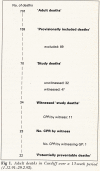Abstract
In order to estimate the impact of a community programme of training in cardiopulmonary resuscitation (CPR), we reviewed all adult deaths in the city of Cardiff (population 292,600) during a 13-week period. Of 701 deaths, 70 were cases of fatal out-of-hospital cardiac arrest due to heart disease, for whom it was felt that CPR might have been of value. Only 34 (48.6%) deaths were witnessed, and in 22 of them the witness did not start CPR. In the majority of cases the ambulance service was not summoned immediately. We calculate that a community CPR training programme may, at best, reduce the community cardiac mortality rate by 7.5%, ie saving between 24 and 56 lives per 100,000 adult population per year; but more realistically, such a programme can only achieve a reduction of 0.4%, ie saving up to six lives per 100,000 per year. Although community CPR training programmes are likely to lead to only a modest reduction in community cardiac mortality rates, because countrywide there are many deaths, the total of lives saved would be significant. Implementation of such programmes should be carefully evaluated.
Full text
PDF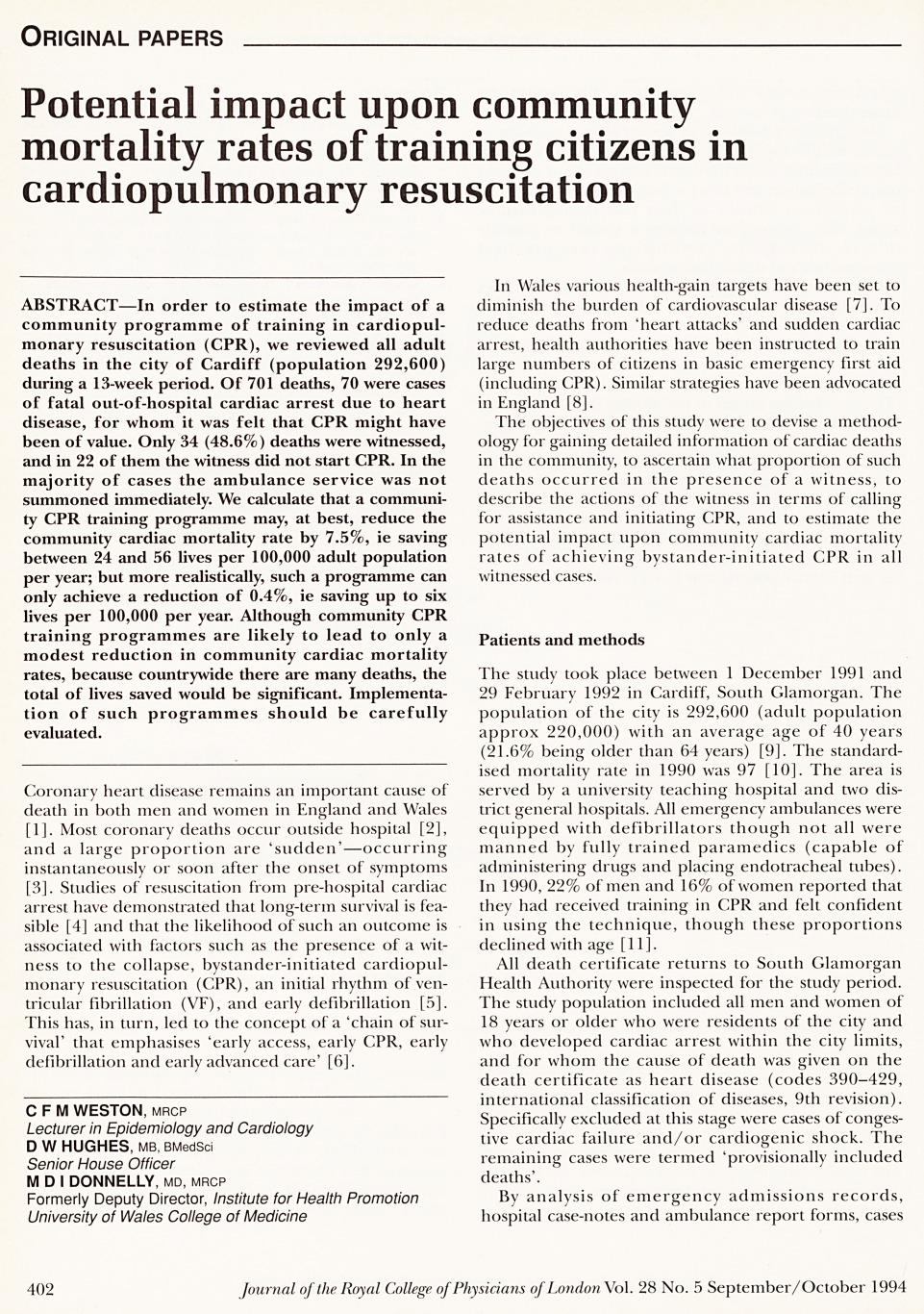
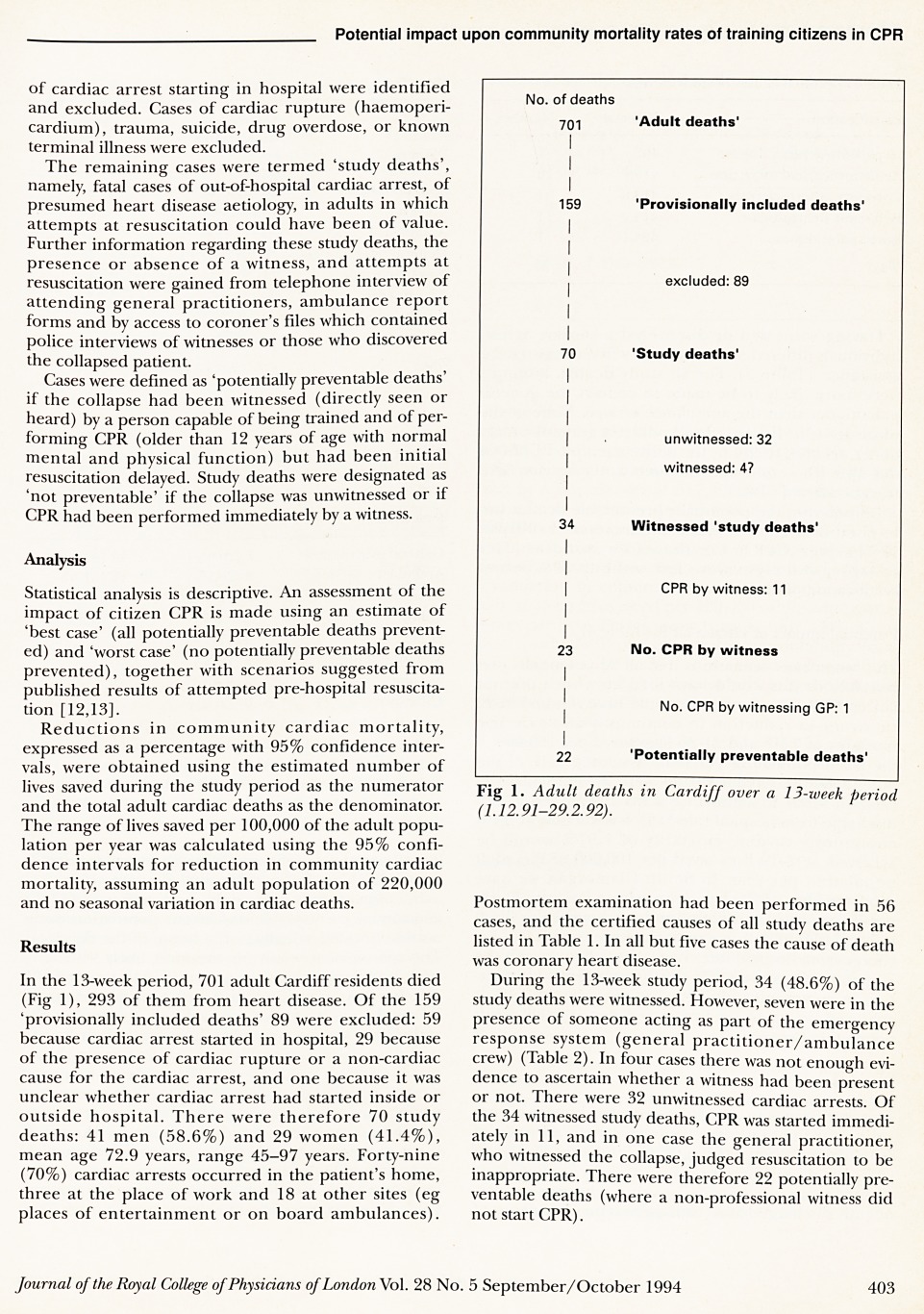
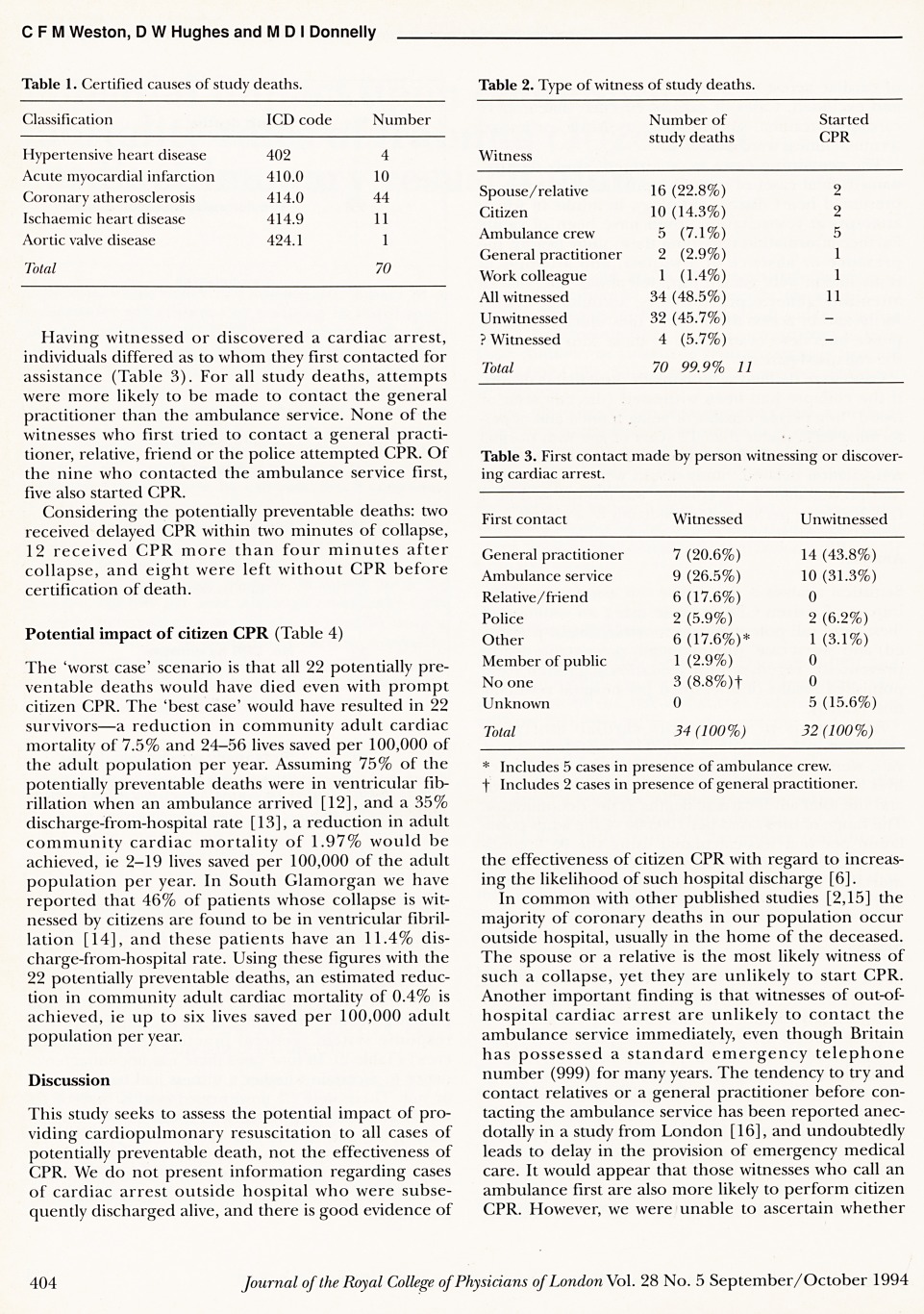
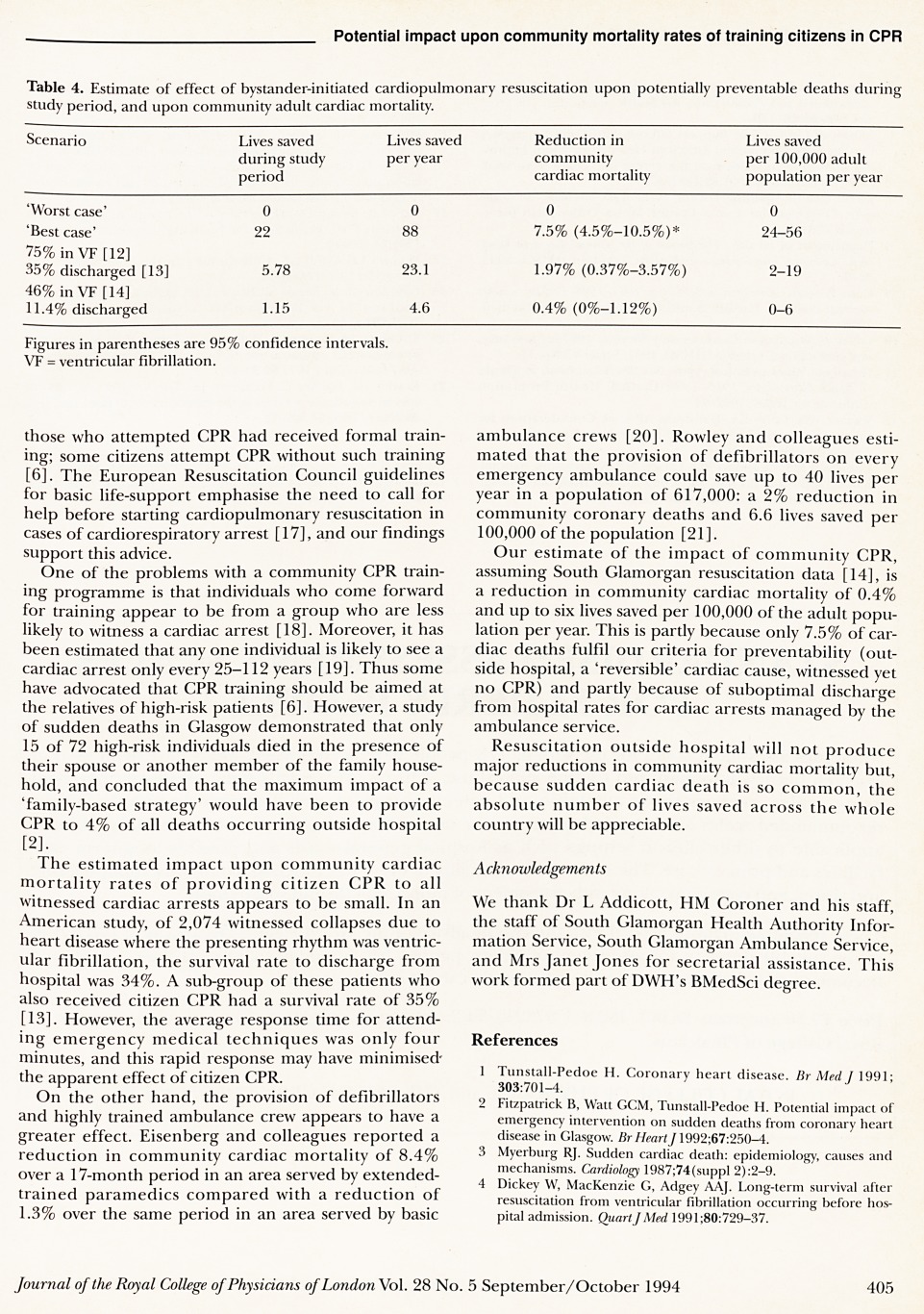
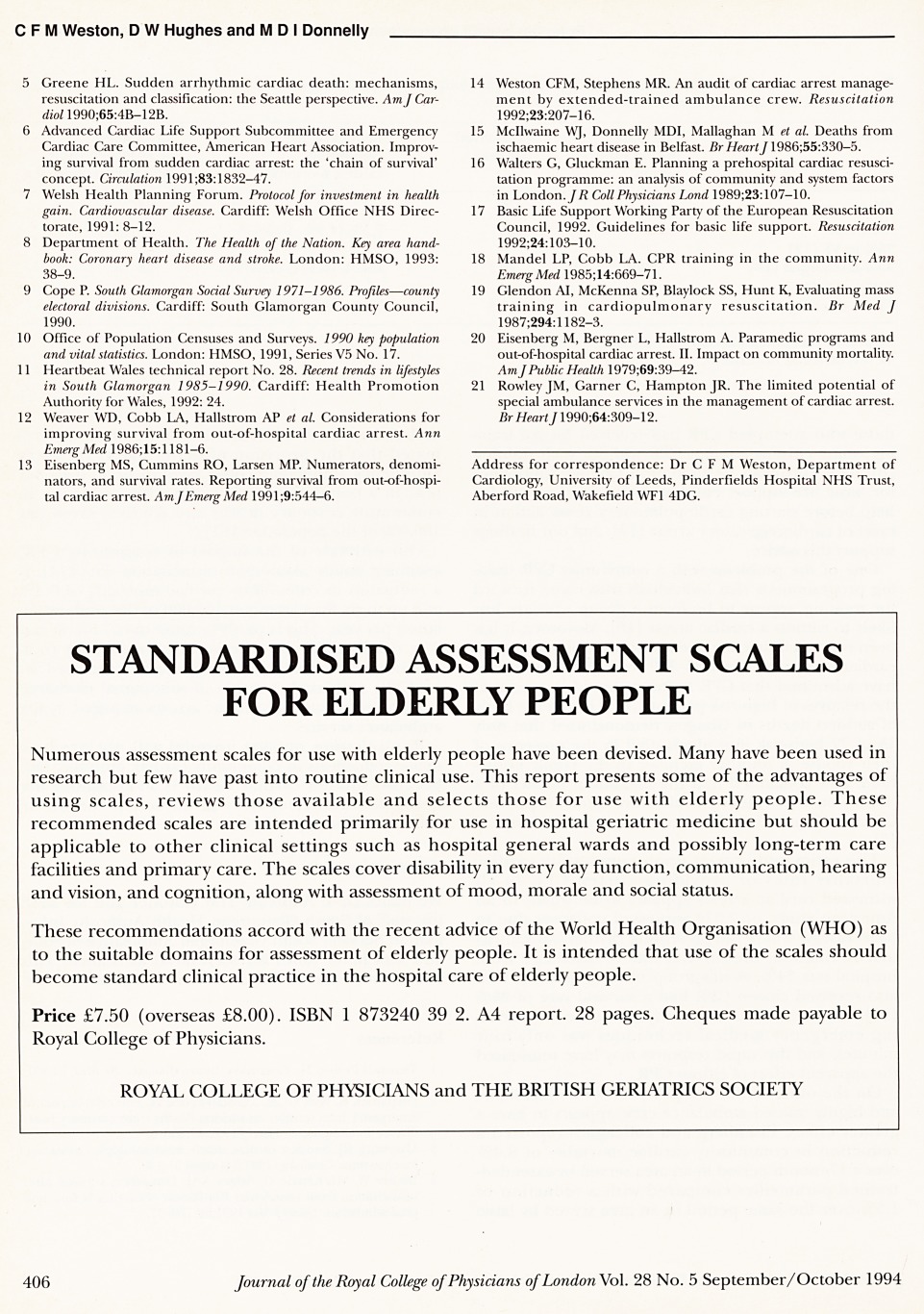
Contributor Information
C F M Weston, Lecturer in Epidemiology and Cardiology, Institute for Health Promotion University of Wales College of Medicine.
D W Hughes, Senior House Officer, Institute for Health Promotion University of Wales College of Medicine.
M D I Donnelly, Formerly Deputy Director, Institute for Health Promotion University of Wales College of Medicine.




